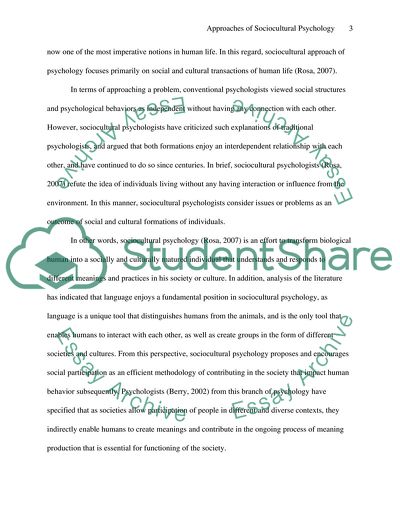Cite this document
(Approaches of Sociocultural Psychology Term Paper, n.d.)
Approaches of Sociocultural Psychology Term Paper. Retrieved from https://studentshare.org/psychology/1732194-main-features-and-specificity-of-approaching-a-problem-as-a-socio-cultural-psychologist-discuss-with-reference-to-the-issue-of-health
Approaches of Sociocultural Psychology Term Paper. Retrieved from https://studentshare.org/psychology/1732194-main-features-and-specificity-of-approaching-a-problem-as-a-socio-cultural-psychologist-discuss-with-reference-to-the-issue-of-health
(Approaches of Sociocultural Psychology Term Paper)
Approaches of Sociocultural Psychology Term Paper. https://studentshare.org/psychology/1732194-main-features-and-specificity-of-approaching-a-problem-as-a-socio-cultural-psychologist-discuss-with-reference-to-the-issue-of-health.
Approaches of Sociocultural Psychology Term Paper. https://studentshare.org/psychology/1732194-main-features-and-specificity-of-approaching-a-problem-as-a-socio-cultural-psychologist-discuss-with-reference-to-the-issue-of-health.
“Approaches of Sociocultural Psychology Term Paper”, n.d. https://studentshare.org/psychology/1732194-main-features-and-specificity-of-approaching-a-problem-as-a-socio-cultural-psychologist-discuss-with-reference-to-the-issue-of-health.


